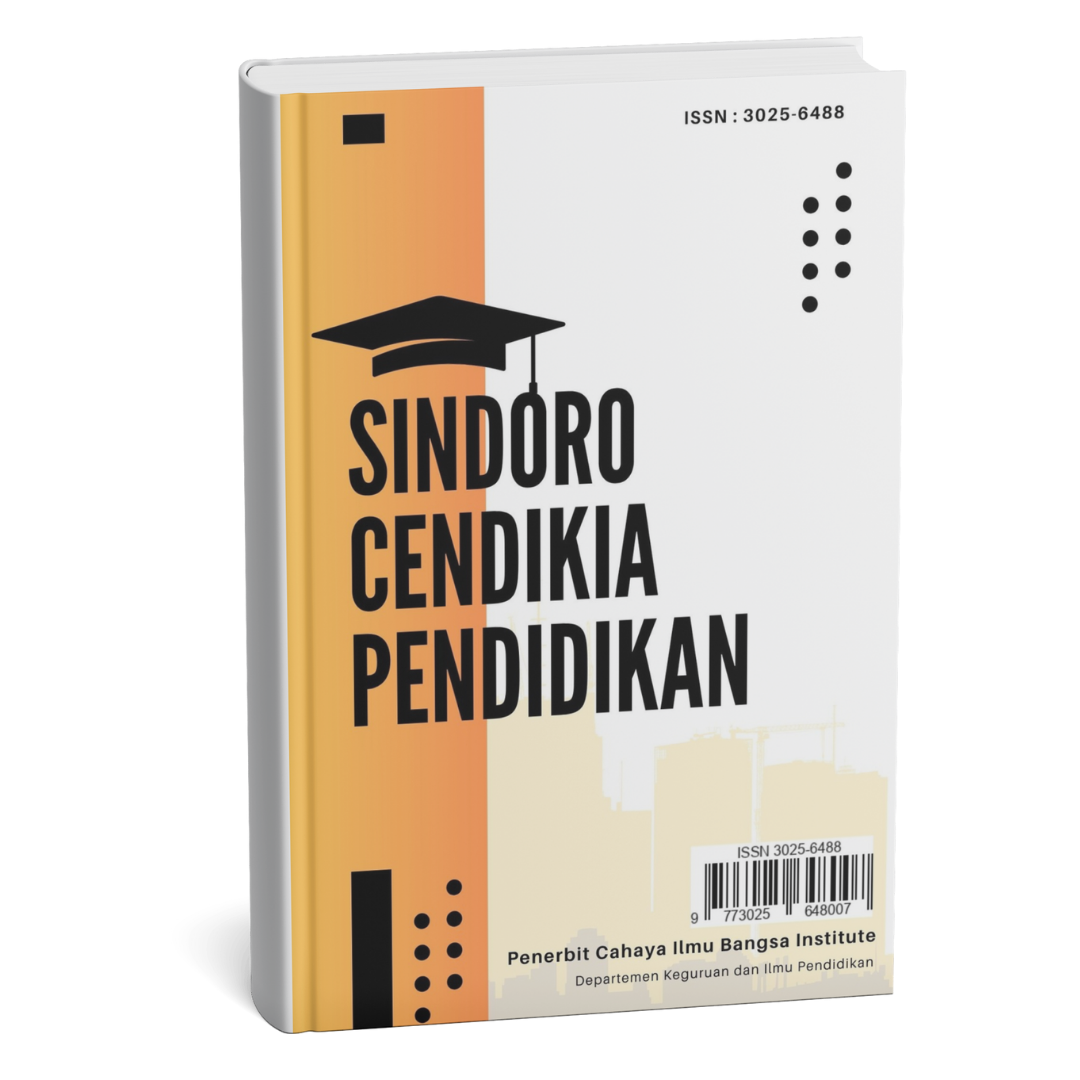ANALISIS PERSEPSI GURU SEKOLAH DASAR MENGENAI PENGAJARAN STEAM: STUDI KASUS DI JAKARTA
Main Article Content
Abstract
Penelitian ini bertujuan untuk menganalisis persepsi guru sekolah dasar di Jakarta mengenai pendidikan STEAM. Penelitian ini menggunakan desain studi kasus kualitatif dengan data yang dikumpulkan melalui wawancara, observasi, dan jurnal refleksi siswa. Hasil penelitian menunjukkan bahwa guru memiliki pandangan positif terhadap penerapan pendidikan STEAM, yang dianggap mampu meningkatkan berbagai kompetensi siswa seperti berpikir kritis, kemandirian, dan kolaborasi. Pendidikan STEAM juga dipandang sebagai pendekatan pembelajaran yang konstruktif, memungkinkan siswa membangun pemahaman mereka sendiri dan terlibat aktif dalam proses pembelajaran. Namun, penerapan STEAM yang efektif memerlukan prasyarat seperti penguasaan guru terhadap disiplin STEAM, alokasi waktu yang memadai, serta kurikulum yang terintegrasi dan kolaboratif antar mata pelajaran. Penelitian ini menekankan bahwa guru harus memiliki pemahaman mendalam dan kemampuan untuk mengintegrasikan berbagai disiplin ilmu guna mendukung pembelajaran yang komprehensif melalui pendekatan STEAM.
Article Details
Section
This work is licensed under a Creative Commons Attribution-ShareAlike 4.0 International License.
How to Cite
References
Astawan, I. G., Suarjana, I. M., Werang, B. R., Asaloei, S. I., Sianturi, M., & Elele, E. C. (2023). Stem-Based Scientific Learning and Its Impact on Students’ Critical and Creative Thinking Skills: an Empirical Study. Jurnal Pendidikan IPA Indonesia, 12(3), 482–492. https://doi.org/10.15294/jpii.v12i3.46882
Baran, M. (2023). Examining Expert Opinions on Steam Education : a Case. International Online Journal of Education and Teaching, 10(2), 778–801. https://www.iojet.org/index.php/IOJET/article/view/1840/899
Breda, A., Garcia, V., & Santos, N. (2023). Teachers’ Perceptions of STEAM Education. International Journal of Technology in Education, 6(4), 700–719. https://doi.org/10.46328/ijte.563
Cook, K., Bush, S., Cox, R., & Edelen, D. (2020). Development of elementary teachers’ science, technology, engineering, arts, and mathematics planning practices. School Science and Mathematics, 120(4), 197–208. https://doi.org/10.1111/ssm.12400
DeJarnette, N. K. (2018). Implementing STEAM in the Early Childhood Classroom. European Journal of STEM Education, 3(3), 1–9. https://doi.org/10.20897/ejsteme/3878
Erdogan, N., & Bozeman, T. D. (2015). Models of Project-Based Learning for the 21st Century BT - A Practice-based Model of STEM Teaching: STEM Students on the Stage (SOS)TM (A. Sahin (ed.); pp. 31–42). SensePublishers. https://doi.org/10.1007/978-94-6300-019-2_3
Favo, C. F. (2021). “Teachers in the Workforce” Grant Intervention: Effective Professional Development for.
Fosnot, C. T. (2013). Constructivism: Theory, Perspectives, and Practice, Second Edition. Teachers College Press. https://books.google.co.id/books?id=-pIbAgAAQBAJ
Gross, K., & Gross, S. (2016). TRANSFORMATION: Constructivism, Design Thinking, and Elementary STEAM. Art Education, 69(6), 36–43. https://doi.org/10.1080/00043125.2016.1224869
Hallinen, J. (2024). STEM Education Curriculum. Britannica. https://www.britannica.com/topic/STEM-education
Herro, D., & Quigley, C. (2017). Exploring teachers’ perceptions of STEAM teaching through professional development: implications for teacher educators. Professional Development in Education, 43(3), 416–438. https://doi.org/10.1080/19415257.2016.1205507
Katz-Buonincontro, J. (2018). Gathering STE(A)M: Policy, curricular, and programmatic developments in arts-based science, technology, engineering, and mathematics education Introduction to the special issue of Arts Education Policy Review: STEAM Focus. Arts Education Policy Review, 119, 1–4. https://doi.org/10.1080/10632913.2017.1407979
Komarudin, K. (2022). STEM-Based E-Module in Improving Students’ Mathematical Creative Thinking Ability: A Needs Analysis for Indonesian Students. Jurnal Cartesian (Jurnal Pendidikan Matematika), 2(1), 124–136. https://doi.org/10.33752/cartesian.v2i1.2685
Kurniawan, H., & Susanti, E. (2021). Pembelajaran Matematika Dengan STEM (Science, Technology, Enginering, and Mathematic) (1st ed.). Deepublish Publisher.
Lockwood, D. (2023). Challenge-Based Learning & STEAM Curriculum. The Steam Journal, 5(1), 1–7. https://doi.org/10.5642/steam.zfxx7073
Lopez, R. J. (2023). Exploring Teachers’ And Administrators’ Perceptions Of STEAM Education In K-12 Schools And Its Implications On The Development Of STEAM: An Explanatory Sequential Mixed Method Design. https://scholar.stjohns.edu/cgi/viewcontent.cgi?article=1587&context=theses_dissertations
Mang, H. M. A., Chu, H. E., Martin, S. N., & Kim, C. J. (2021). An SSI-Based STEAM Approach to Developing Science Programs. In Asia-Pacific Science Education (Vol. 7, Issue 2). https://doi.org/10.1163/23641177-bja10036
Nores, M., & Barnett, W. S. (2014). Access to High Quality Early Care and Education: Readiness and Opportunity Gaps in America. The Future of Children, 1(May), 23–50. https://doi.org/https://doi.org/10.1353/foc.2019.0002
OECD. (2019). Pendidikan di Indonesia Belajar dari Hasil PISA 2018. Pusat Penilaian Pendidikan Balitbang Kemendikbud, 021, 1–206.
Quigley, C. F., Herro, D., King, E., & Plank, H. (2020). STEAM Designed and Enacted: Understanding the Process of Design and Implementation of STEAM Curriculum in an Elementary School. Journal of Science Education and Technology, 29(4), 499–518. https://doi.org/https://doi.org/10.1007/s10956-020-09832-w
Reimers, F. M., & Chung, C. K. (2019). Teaching and learning for the twenty-first century: Educational goals, policies, and curricula from six nations. Harvard education press.
Videla-reyes, R., & Aguayo, C. (2022). Pedagogy of uncertainty : Laying down a path in walking with STEAM. Pacific Journal of Technology Enhanced Learning, 4(1), 16–18. https://doi.org/https://doi.org/10.24135/pjtel.v4i1.147
Wynn, T., & Harris, J. (2012). Toward A Stem + Arts Curriculum: Creating the Teacher Team. Art Education, 65(5), 42–47. https://doi.org/10.1080/00043125.2012.11519191

